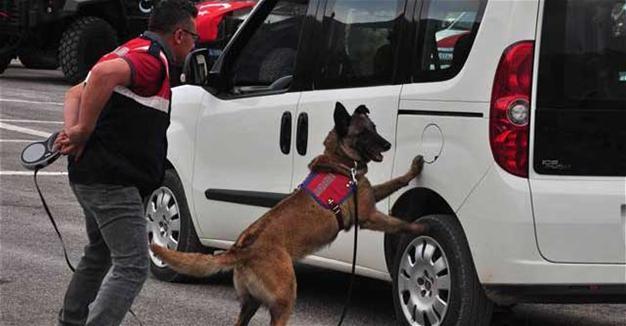Turkey to set up ‘rehabilitation villages’ for drug addicts
Fevzi Kızılkoyun – ANKARA

Turkish authorities are planning to set up “rehabilitation villages” to help drug users get rid of their addictions in four provinces.
Due to a striking increase in the number of drug users in the country, the Alcohol and Drug Addiction Treatment Centers (AMATEM) have started to become insufficient to provide treatment to all addicts, prompting authorities to seek new solutions.
The issue of drug addiction has been on the authorities’ agenda especially in the recent days, with the number of addicts reaching 200,000. While the minimum age of a drug user decreased at worrying levels to 11, people having seizures after using chemicals has become a common sight in the cities, with people urging the authorities to act on the issue.
As part of the “Struggle against Drugs Action Plan,” the Turkish interior, justice, family and social policies, labor and social security, customs and trade, education and health ministries have speeded up their efforts and taken new steps to rehabilitate drug addicts and reintegrate them into society.
Drug addicts are currently receiving treatment in 79 centers in 49 provinces. However, there have been problems on reintegrating rehabilitated drug addicts into society after their treatments were completed.
The authorities have decided to establish rehabilitation villages, which are common in many European countries, after seeing that those leaving AMATEM started using drugs and alcohol again.
The efforts are in their last stage in two rehabilitation villages in Istanbul and the western province of İzmir and they will start to provide treatment soon.
A total of 12 rehabilitation and social adaptation villages will be set up in Istanbul, İzmir, Ankara and the southern province of Adana, with the first two provinces to have four villages each, while the latter two to have two centers each.
Addicts will be accommodated in the villages and be under observation for three years as their isolation, treatment and reintegration processes continue.
Those under the age of 18 will be rehabilitated regardless of their will. The authorities are aiming to track patients after treatment in order to prevent them from using drugs again.
The initial stage in the villages will be the cleansing and isolation of an individual from drugs. The second stage will provide the addict with psychological support and rehabilitation, while the last process will feature opening up vocational courses similar to those in semi-open prisons.
This way, the individual will both receive vocational training and go through the process of socializing and adaptation after overcoming their addiction.
Moreover, periodic efforts regarding addicts will be carried out and data will be collected via scanning efforts across the country. The data will be taken under the scope of “cosmic information” for a follow-up on the patients.
In order to prevent the patients from being outed, alienated and casted away from the society, the data will be registered using codes. The individuals will be referred to by letters or numbers and their information will remain confidential from everybody except doctors and the authorities in charge.
Turkey is on a major passage route of drugs from east to west. The World Drugs Report showed that Turkey ranks first in heroin seized in Europe.
According to forensic medicine institute reports on the causes of deaths in 2016, a total of 611 people lost their lives because of drugs, of whom 243 were directly and 368 indirectly.
The Department of the Struggle Against Drugs, meanwhile, said drug abuse rose by 28 percent compared to the last year and the age range of addicts was mostly between 18 and 20.
As part of the new efforts, the number of narcotic units, who are active in 59 provinces with 60 percent success ratio, will be increased.
According to police data, a total of 24,592 anti-drug operations were carried out in 2016 and 38,160 suspects were detained, in addition to hundreds of kilograms of drugs seized.
 Turkish authorities are planning to set up “rehabilitation villages” to help drug users get rid of their addictions in four provinces.
Turkish authorities are planning to set up “rehabilitation villages” to help drug users get rid of their addictions in four provinces.